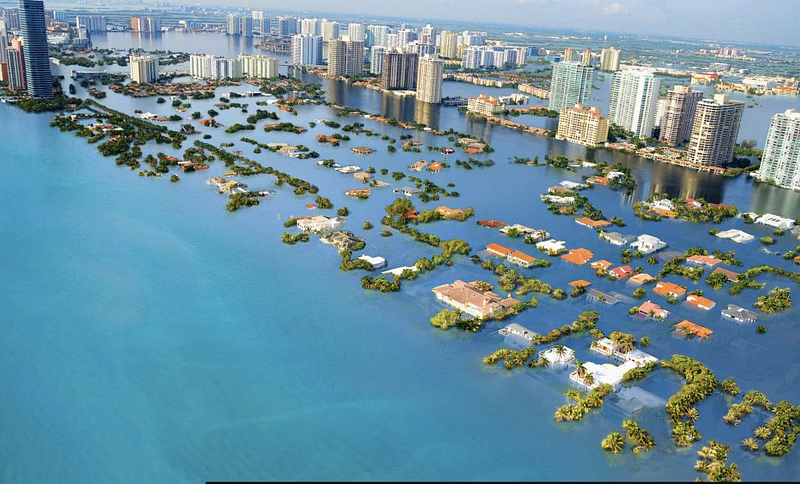
I am the daughter of a Dominican immigrant, the grand-daughter of two Puerto Rican immigrants, and the first child in my family to go to college.
I am a New Jersey native, yet I have resided in the state of Florida for the last four years — a place that is now recognized as ground-zero for global warming and the climate crisis.
This state is not only my home, but it is also home to the nationally-protected Everglades, Walt Disney theme parks, the Daytona 500, and some of the United States’s most pristine beaches. It also houses the largest production of citrus fruits in the United States; some of the most admired wildlife throughout the country call it home.
But for the residents of Miami-Dade County — simultaneously the most endangered and populated county in all of Florida — home has fallen so far below sea-level that its residents can no longer keep their heads above water. For 70 percent of Hispanics and 20 percent of African-Americans living in Miami-Dade County, the generational deprivation of wealth, education, and opportunity has pushed them to the outskirts of south Florida’s most endangered neighborhoods. Their home have become contaminated by an increase in toxic algae blooms, coral reef bleaching, invasive species, and even mosquito-borne illnesses.
For those groups most affected by these changes — such as children, the working-class, the elderly, and the sick — home has become so polluted with violence and poverty that, even on the hottest days, it’s a risk to leave our windows open, and we can’t afford to turn on our air conditioning systems. We cannot afford to relocate nor can we afford to purchase the necessary tools and supplies to prepare for the increase in tropical storms and hurricanes.
My people, most of whom are struggling to face these challenges, have been deprived not only of financial stability, but also of adequate information regarding the climate crisis and its causes. With animal agriculture and the misuse of resources being two of the leading causes of global warming, the U.S. government has been depriving our people of the proper education to eat and live sustainably. It is up to us — the people who are being left to deal with a world stripped of its natural resources and integrity — to demand, not request, change.
We demand action for the less-privileged and for the future generations who are living amongst the muck of our ancestors. It is our responsibility as students of the College to use the knowledge that has been bestowed upon us to seek out government intervention, to promote awareness on the severity of the climate crisis, and to change the daily practices that perpetuate the everlasting harmful effects on our ecosystem. The oppression that has prevented the progression of our society can only be destroyed and deconstructed through the joint efforts of social justice and climate activism.
In honor of those who have previously fought for our future, we must continue the legacy with greater passion, determination, and strength. We must show those currently in power that this country — created “by the people, for the people” — is a progressive nation fighting for the betterment of the human experience.

















